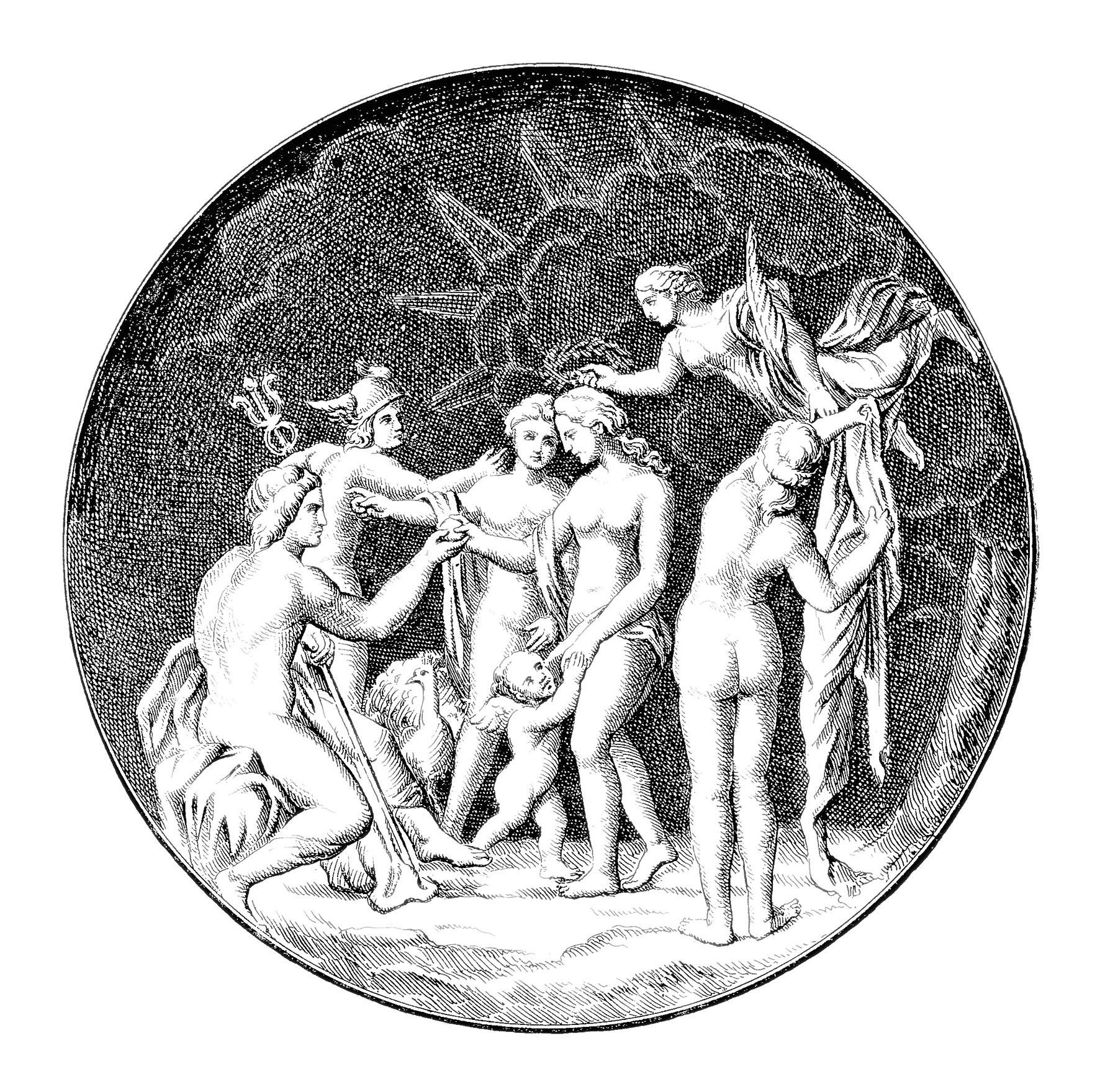Looking at a drop of water, you are essentially looking at yourself. A human being is made up of roughly two thirds water. No human, no individual organism on this world could have ever developed without water. This knowledge has existed for a long time, even before we were able to put it down in writing. Water was already venerated in antiquity as the source of all existence.
The German philosopher Hegel dubbed it the element of the selfless opposite: “Water’s existence is being-for-others… its determination is to be the thing that is not yet special and it has therefore been called ‘the mother of all special things’ from an early age onwards.” Across civilizations, most of which assumed that life had started in the oceans, an abundance of creation myths have been developed. In their different versions, they all depicted water as the mirror of the universe and subsequently found their continuation in the world religions. The first book of Moses, for example, states: “In the beginning God created the heavens and the earth. Now the earth was formless and empty, darkness was over the surface of the deep, and the Spirit of God was hovering over the waters.”
In the Japanese creation myth, a gigantic carp awakens from its slumber and thrashes around so violently that it creates a tidal wave, causing the Japanese islands to surface on the face of the earth. The Indian god Vishnu, on the other hand, shapes the earth while resting on a snake gliding through the cosmic waters.
Ancient water myths
Starting in antiquity, several water gods were venerated. Some were benign, others evil. They were all, however, omnipotent. Like Okeanos, for example, the origin of all gods and simultaneously the river flowing around the world, or Poseidon, the god of the ocean. The most alluring of the classic goddesses relating to water is Aphrodite or Venus, her Roman counterpart. According to the myth, she was born of the semen of sea foam and blood and rose out of a scallop on Cyprus. She was so beautiful that the seasons of the year came and were bedazzled by the sight of her. As the goddess of love and beauty the “foam-born” inspired numerous artists. This led to the creation of some of the greatest masterpieces in art history, such as the Greek antique statue “Venus of Milo,” Botticelli’s painting “Birth of Venus” or Titian’s work of art “Venus of Urbino.”
People also believed in water nymphs who reigned over streams, springs and grottoes, in sea nymphs who saved mariners and shipwrecked sailors, but also in sea monsters and mermaids – seductive and irresistible creatures – who robbed men of their senses with their demonic attraction and at times cost them their lives. They embodied both the life-threatening and life-giving aspect of water. However, the veneration of water found its expression not only in mythology, but also in cultural rituals.
In order to produce rain, people carried out mystic ceremonies, in the course of which rain dances were performed to exhaustion. Sacrifices were made or processions held with songs of invocation. One washed away “evil” with holy water and subjected the spirit to a spiritual cleansing, also mirrored by the washing of the dead in all cultures. And last but not least, the ritual of baptism symbolizes a bond with God for believers.

Copyright Michael Brus
Entering “Esbjerg” in the heart of Vienna for the first time, you are welcomed by mild fragrances, sparkling blades, classic pots, jars and a sea of brushes. The most beautiful store in the city is all about the body – its well-being, its beauty. The shaving specialty shop on Krugerstrasse – a side street of Kärntner Strasse – offers Austria’s largest selection of fine wet shaving products and has long since become the city’s premiere address for grooming. This is where men who are concerned about proper grooming and body care come for all their shaving needs. Tastefully and invitingly arranged, the products are a true delight as they reveal their magnificent effect in the privacy of a gentleman’s own bathroom.
Marga Walcher sells nothing but the best: “I love the stylish and the beautiful and spare no effort to be the top of my class and to stay that way too.” You can tell that the lady makes no concessions where quality is concerned. A diverse set of regular customers is her reward. They all have one basic need in common: Nothing but quality can touch their skin.
The further range of scents and care products for men is made up of proven and classic labels, all of which have been personally selected by Walcher. Furthermore, one can shop at Esbjerg with a clear conscience, as fairness at all production stages is of the utmost importance. Because it actively takes responsibility in the field of employee leadership, Esbjerg was ranked third in the “DiversCity” awards of the Vienna Economic Chamber in 2012.
Our own brand of natural cosmetics now complements the Esbjerg range
Before a brand is awarded space in these elegant surroundings, Ms. Walcher puts manufacturers through a close inspection, traveling around the world if need be. “The product must be on solid footing and have the right team behind it.” Success has proven her right. Over the past 30 years, the store has become a real insider’s tip. It gets off to an international start in the morning, as businessmen from all corners of the world make their appearance along with established Viennese regulars. “Some men have been our customers for years. We have heard about their personal lives and their ups and downs.”
To shop at Esbjerg is to reward yourself and spare no expense. Understandably so: So much goodness, such bliss for a weary man’s heart, plus all the expert advice to make your skin feel its best, and none of the tedious shelf-hopping, wasting valuable time before you can find the product that suits you. Back when Esbjerg opened its doors three decades ago, male customers were more liable to opt for the next best solution, pocket their purchase and just carry on. In other words, there was no pleasure in shopping for them.
Nowadays, they appreciate competent advice, they take great care to pick the right product and then stick with it. They have come to indulge in their very own haven of well-being, because this is what a decent wet shave using quality shaving cream and a shaving brush is all about, essentially. It’s an almost meditative ritual exclusive to men.

